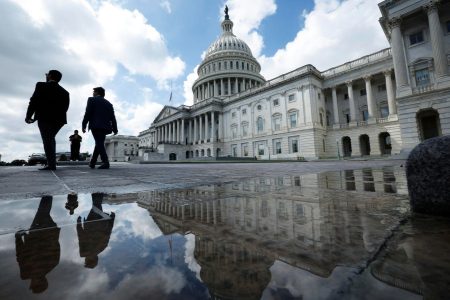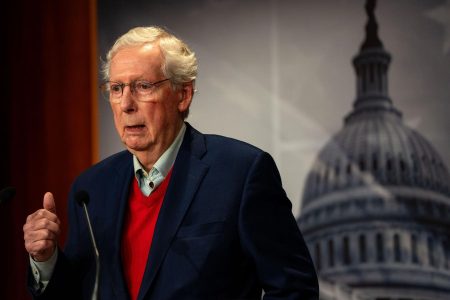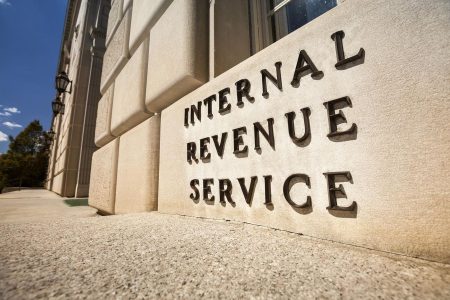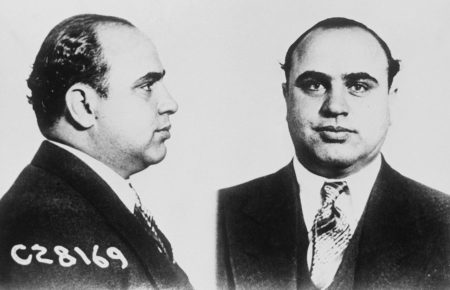The Attorney General for the District of Columbia, Brian L. Schwalb, has announced a settlement with billionaire Michael Saylor and MicroStrategy, Inc., the company he founded and ran as CEO until August 2022, when he moved into the chairman’s role. As part of the settlement, Saylor and MicroStrategy will pay $40 million to resolve a lawsuit alleging that they violated the District’s False Claims Act and tax laws.
Schwalb called the settlement “the largest income tax recovery in District history.”
The lawsuit, the first of its kind under the amended D.C. False Claims Act (FCA), alleged that for decades Saylor falsely claimed to live in lower-tax Virginia and Florida to avoid paying the income taxes he would owe to the District of Columbia as a city resident.
Forbes estimates that Saylor, 59, is currently worth $4.8 billion, thanks to his personal holdings of bitcoin and his ownership of stock in MicroStrategy, which has invested heavily in the cryptocurrency. In October 2020, he disclosed he had personally bought 17,732 bitcoins for $175 million.
False Claims Act
The FCA imposes liability on those who commit one of a laundry list of violations, including violations of the tax law. It’s also a whistleblower law, meaning that individuals who file claims alleging wrongdoing are eligible for an award between 15-25% of any money the city recovers. Typically, for there to be a recovery, the Office of the Attorney General (OAG) must agree to investigate and intervene in the matter—that’s what happened here. (But a whistleblower can also proceed without the OAG, and if they’re successful, would be entitled to 25-30% of the amount recovered.)
As with federal tax whistleblowing statutes, there are limits—for tax-related claims to be successful, the District taxable income, District sales, or District revenue related to the action must be $1 million or more for any taxable year, and the harm to the District must be $350,000 or more.
Notably, the FCA also provides whistleblower protections, which are meant to allow claimants to come forward without fear of reprisal.
Before 2020, the District followed the Procurement Practices Act of 1985 with respect to false claim liability. The law was expanded to include specific references to taxation and increase the reward for informants who report tax fraud—that might have been the impetus for the Saylor filing.
(You can read the text of the statute here.)
Background
In 2021, whistleblowers filed a lawsuit against Saylor, alleging that he had failed to pay income taxes he owed to the District of Columbia from 2014 through 2020.
The OAG opted to intervene and filed its own complaint against Saylor and MicroStrategy. In that lawsuit, the OAG alleged that Saylor lived in the District but avoided paying more than $25 million in District income taxes by pretending to be a resident of Virginia, which has a lower individual income tax rate and Florida, which has no individual state income tax. Building on the original whistleblower lawsuit, the District also sought to recover taxes that they claim Saylor failed to pay for previous tax years, as well as interest and penalties.
And, the complaint had a twist—it didn’t just seek damages from Saylor. The OAG alleged that Saylor used his company, MicroStrategy, to create and issue false information, including the wrong address on Saylor’s Forms W-2 and other records, which is why MicroStrategy was also a defendant.
Parties
In its amended complaint, the District referred to Saylor as “a highly educated, sophisticated businessman,” noting that he founded MicroStrategy, a publicly traded business analytics and technology company. For over 20 years, Saylor served as MicroStrategy’s Chairman and Chief Executive Officer.
The amended complaint further says that Saylor established MicroStrategy’s corporate headquarters in Tysons Corner, Virginia, in the 1990s and moved his residence to Northern Virginia. Then, the prosecution alleges, “[a]fter making a fortune in the initial public offering of MicroStrategy’s stock in 1998, Defendant Saylor relocated his residence to the District’s Georgetown neighborhood and established the District as his domicile.”
Allegations
The OAG alleged that by 2005, Saylor had moved into a penthouse apartment on the Georgetown waterfront at 3030 K Street N.W. Over the next few years, Saylor spent millions on three luxury condominium units, and in 2011, he combined the three properties into a single 7,000-square-foot residence he now calls “Trigate.” According to the complaint, the budget for custom woodworking alone exceeded $5 million.
While the renovations were ongoing, the OAG claims, Saylor continued to live in D.C., often staying aboard one of his yachts, which he kept on the Georgetown waterfront during the day and anchored in the Potomac River at night. He also purchased the penthouse unit at the Eden Condominiums in D.C.’s trendy Adams Morgan neighborhood while he waited for the Trigate construction to be completed.
The complaint included numerous social media posts about the renovations, including this one from September 2012, in which Saylor referred to his “future home.”
He referred to the area as his home again in an October 2012 post.
The renovations on his residence were finished in 2014.
The OAG alleged that while Saylor actually lived in D.C.—and was saying as much in these social media posts—he was filing taxes as a resident of Virginia. Then, in 2012, Saylor claimed to be a resident of Florida.
Florida has no personal income tax, while Virginia has a progressive personal income tax rate beginning at 2% and topping out at 5.75%. In contrast, the District of Columbia has a graduated personal income tax, with rates ranging from 4% to 10.75%.
Individual states—and the District of Columbia—may handle tax residency differently. Tax treatment can also vary depending on your domicile. For income tax reasons, residency is your physical location and domicile is where you intend to remain. That means that you can sometimes be a resident of two (or more) states, but you can only have one domicile at a time. You can also have a temporary residency, whereas your domicile is more permanent.
(In my home state of Pennsylvania, we like to say that your residence is where you live whereas your domicile is where you plan to die.)
While your intent matters when it comes to domicile, some states—and the District of Columbia—often have a simple statutory formula for residency. Most states will consider you a resident for income tax purposes if you spend 183 days or more in that state.
With that in mind, the OAG maintained that Saylor resided in D.C. for enough days (183) in those years to make him a resident—and that MicroStrategy knew this for at least some of the time. The company kept detailed Excel spreadsheets during this period, recording Saylor’s physical location daily from 2015 through 2020, which were provided to the OAG.
Those logs, said the OAG, show that Saylor spent most days of each year physically present in D.C. Specifically, the logs show that Saylor was present in the District 313 days in 2015, 240 days in 2016, 199 days in 2017, and 231 days each in 2018 2019. In 2020, the logs showed that Saylor spent 86 days in his Florida house, and “at least 183 days in the greater D.C., Maryland, and Virginia area.”
According to the complaint, MicroStrategy began tracking Saylor’s physical location in at least 2012, and metadata from the Excel logs suggests that the company may have started tracking Saylor’s physical location well before that—since 2006.
That means, the OAG says, that since at least 2014, MicroStrategy knew that Saylor was a resident of D.C. and required to pay income tax to the District. Nonetheless, the OAG alleged that the company didn’t appropriately withhold or report the correct amounts for Saylor’s District income taxes.
Responses
Saylor and MicroStrategy have consistently maintained in court filings that he did nothing wrong. Saylor was represented by a team of lawyers, including Gibson Dunn’s Eugene Scalia—Solicitor of Labor under President George W. Bush and Secretary of Labor under then-President Donald Trump administration, and son of the late Supreme Court Justice Antonin Scalia. Through his attorneys, Saylor issued a statement, saying, “As I stated at the time this case began, in 2012 I moved to Florida and made Miami Beach my home. Florida remains my home today, and I continue to dispute the allegation that I was ever a resident of the District of Columbia. I have agreed to settle this matter to avoid the continued burdens of the litigation on friends, family, and myself.”
That’s consistent with the agreement’s language, wherein Saylor and MicroStrategy deny that they have violated the District’s tax laws or the FCA. Instead, the agreement says, “the Parties wish to avoid the time, expense, and inconvenience of any further litigation, and to resolve any and all disputes and potential legal claims” related to the charges.
As a condition of the agreement, Saylor must comply with the District’s tax laws and agrees to file an income tax return with and pay income taxes to the District of Columbia in any current or future tax year where Saylor owns or rents a residence in the District of Columbia and is physically present in the District of Columbia for at least 183 days of that year.
MicroStrategy issued a statement to Forbes saying, “As we said at the time this suit was filed, this was a personal tax matter involving Mr. Saylor. MicroStrategy was not responsible for his day-to-day affairs and did not oversee his individual tax responsibilities. We are pleased this matter is now being resolved. MicroStrategy has not made, and will not be obligated to make, a financial contribution to the settlement.”
On the day the settlement was announced, MicroStrategy filed a Form 8K with the Securities & Exchange Commission, noting, in part, “Pursuant to a separate agreement between Mr. Saylor and the Company, and following the court’s entry of the Consent Order, Mr. Saylor will pay this settlement amount to the District in full and the Company will not be obligated to make any contribution to the settlement payment.”
Shares of the company were up 3.33% midday, trading at $1,681.61 on the NASDAQ.
The OAG released a statement from Schwalb, saying, in part, “Tax cheats are freeloading off the backs of hardworking, law-abiding, tax paying District residents while depriving our city of resources needed for critical programs, including public safety, infrastructure, and education.”
He continued, “Michael Saylor and his company, MicroStrategy, defrauded the District and all of its residents for years. Indeed, Saylor openly bragged about his tax-evasion scheme, encouraging his friends to follow his example, and contending that anyone who paid taxes to the District was stupid. This precedent-setting settlement makes clear that no one in the District of Columbia, no matter how wealthy or powerful they may be, is above the law.”
Read the full article here












